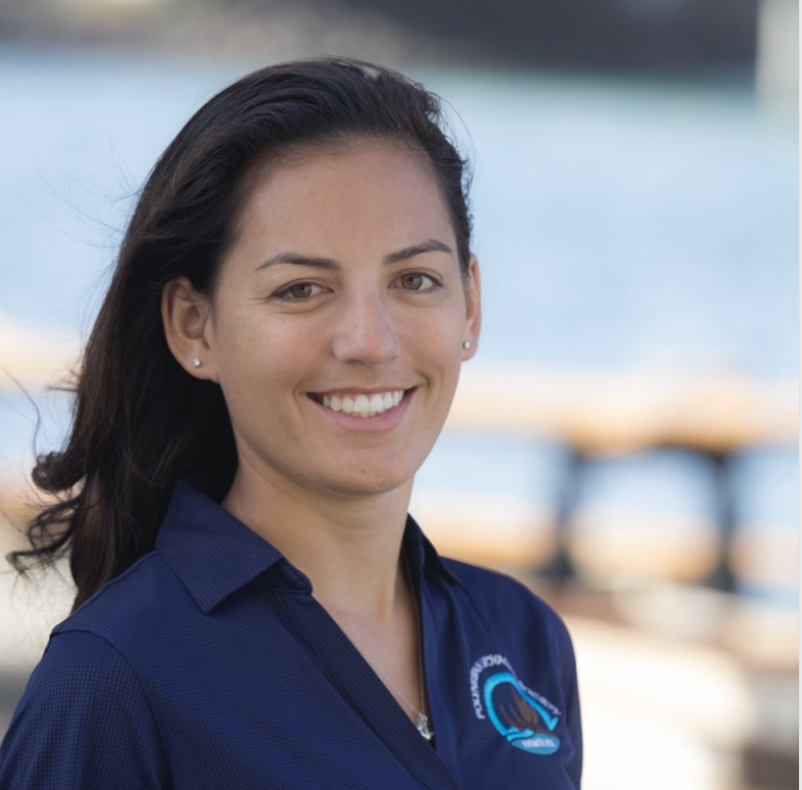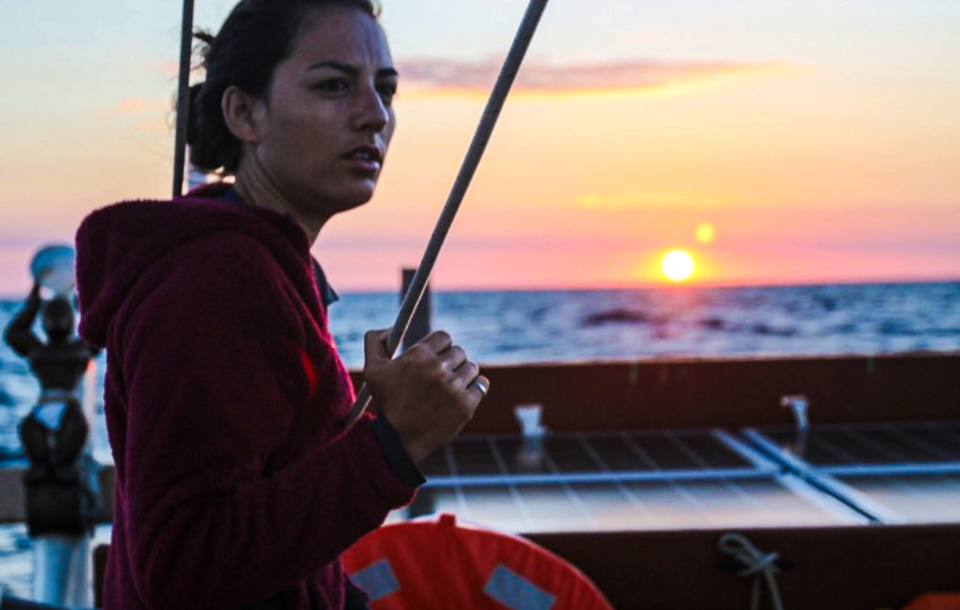
Sailboat captain and navigator Lehua Kamalu, navigated, in 2022, a 3,000-mile Pacific voyage without maps or modern technology in a traditional Polynesian two-hulled canoe with sails named Hokule’a. For the journey, she selected and managed a crew of 10 people.
Born in New York, Kamalu was educated in Hawaii where she earned a degree in mechanical engineering. In 2019, she was honored with a one-year Dial Fellowship from Emerson Collective, an organization which celebrates breakthrough leaders from diverse fields and provides them with new tools and platforms to tell their stories.
Kamalu is one of the few women to become a leader in what’s historically been a patriarchal sailing tradition known as “wayfinding.” She derived inspiration from the legend of Pele, the Hawaiian goddess of fire who, as legend goes, was exiled from Tahiti, then traversed the Pacific from Tahiti to Hawaii. “She’s a goddess,” Kamalu says of Pele in National Geographic magazine, “but she’s also a woman who was the first to truly navigate and open a pathway from Tahiti to Hawaii. So, even though we don’t hear stories of the female figures who came after her, that is a very, very powerful story to consider and think about.”
A National Geographic Emerging Explorer, Kamalu became the first known woman to captain and navigate a long-distance ocean voyage when, in 2018, she sailed 2,800 miles from Hawaii to California.
Today, she’s the Voyaging Director of the Polynesian Voyaging Society (PVS), a non-profit, educational organization dedicated to sailing the high seas in traditional double-hulled canoes for the purpose of reviving and preserving the ancient Polynesian skills of navigation for future generations of sailors. The Polynesians’ compass was the sun and stars. Their maps were simply the waves and winds. As Kamalu explains, “Everything is accomplished mentally. You’re tracking the wind, you’re tracking your cruise speed, and always adjusting the sails.”
Polynesian migration and settlement began some 3,000 years ago according to the most recent studies. The region’s thousands of islands are scattered over 10 million square miles of ocean. This largest migration in world history provides one of the planet’s greatest stories…and puzzles. One Polynesian man called the early explorers “the astronauts of our ancestors.”
As Harvard scholar, Christina Thompson, has written in her book, Sea People, The Puzzle of Polynesia, “When you truly grasp how very little land there is and how much water, it’s surprising that any European explorer ever found anything at all. There’s a reason the remote Pacific was the last place on earth to be settled by humans. It was the most difficult, more daunting even than the deserts or the ice. And, yet, somehow, Polynesians managed not just to find but to colonize every habitable island in this vast sea.” The motivations for this largest migration in world history, however, are still not fully understood.

PVS has another goal: to inspire a greater reverence and respect for the sea and the broader natural world whose rhythms dictate theses journeys. Celebrating its 50th Anniversary in 2026, the organization, which in prior years had proven that the ancient Polynesian navigators could have traversed the Pacific without instruments, hopes to reach 10 million people through in-person events and online classes. The organization will also be storytelling during a five-year 41,000-mile circumnavigation of the globe beginning in 2023.
Kamalu is part of a movement to revive the voyaging tradition. She believes such voyaging can teach the world not only about Polynesian traditions but also about humanity’s fragile relationship to nature. The success of every journey depends on a collaboration of human and natural resources. It offers a means to experience social and environmental justice in action. She says, “modern voyaging can be used to promote a shared vision for how people and places can stay healthy and thrive.”
For more information about the Polynesian Voyaging Society:
www.hokulea.com, 808-842-1101 or e-mail: info@pvshawaii.org
